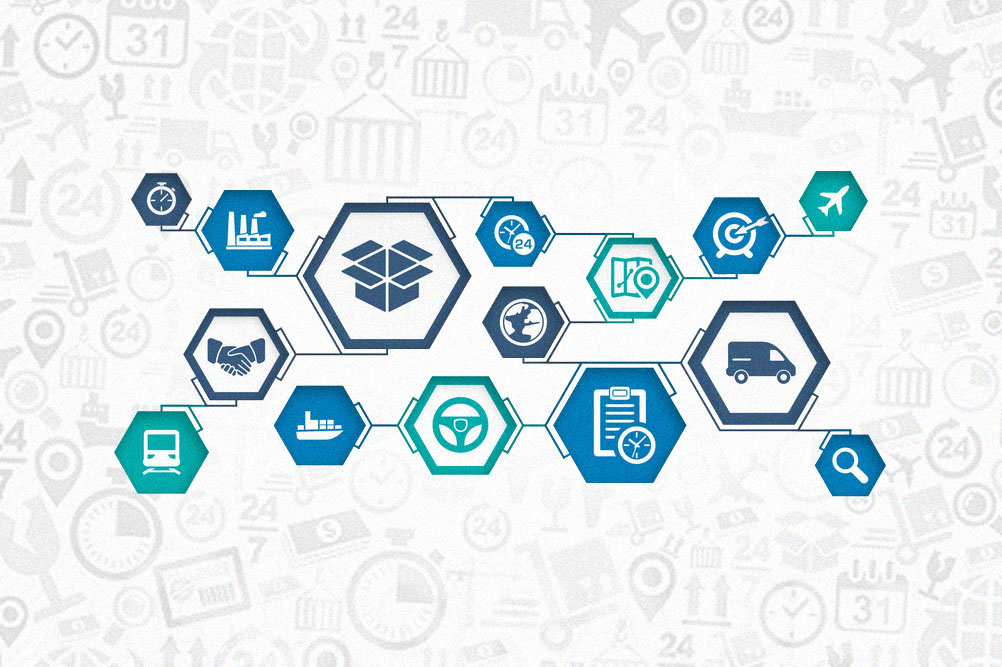
Blockchain was originally developed as an accounting method that people can use for virtual currency. Today it is seen that Blockchain technology also has the capability to revolutionize the transportation and logistics industry. Several companies that offer back office offshoring services were able to save themselves from the dreadful payment disputes and inconsistencies that plagued the industry—and that’s just a portion of what it can do for the business world. Before we dig deeper into that, this begs the question—what exactly is Blockchain?
BLOCKCHAIN
Blockchain technology is an innovation invented by Satoshi Nakamoto in 2008. It was designed to be used as a distributed database technology intended to hold records of digital information. With this technology, people were able to ensure the transparency and security of the stored data without the need to have a controlled central organ. 10 years after Blockchain was created, it was used to enhance the operations of the transport and logistics industry.
Blockchain Affects the Transformation of Freight and Logistics
Back in the day, the freight and logistics industry used to be over-reliant on tedious paper transactions. That’s why when you take a look at the overall cost of transportation back then, you will see that 20% of it comes from the processing and administration costs. It was indeed undeniable that the methods used in the past had a lot of flaws and lapses. But now that Blockchain technology is integrated into the industry, it slowly transformed into what it is at present.
This is how it works.
1. It Is Paving the Way for Streamlined Services
One of the biggest transformation that Blockchain did to the industry is the elimination of middlemen and administrative costs, and all that was achieved through the smart contracts that come with the technology. This revolution led to better documentation processes and streamlined services. Aside from that, Blockchain technology also has the capability to help freight and logistics companies move forward toward larger goals. Companies start to gain the ability to revolutionize the common framework for logistics management, tracking and logistics management and other frameworks that are associated with the technological advancements.
2. It Fosters Cost-Efficiency Through Smart Contracts

Apart from the streamlined services that smart contracts can give, it can also foster cost-efficiency in any company. As mentioned, Blockchain technology eliminates the need to hire middlemen. That said, it can help freight and logistics companies to save money and invest more in other important aspects. Furthermore, smart contracts are also coded to automatically execute tasks when predetermined conditions are met. Business owners will no longer have to worry about fraud and error.
3. It Is Leading Towards the Creation of Bespoke Vehicles
Another revolution that Blockchain technology did to the freight and logistics industry is the creation of bespoke vehicles. Although this is still a work in progress, it is foreseen that the vehicles in the future will be able to serve all the people’s needs all at once. Over the coming years, it is seen that smart technology will gradually be installed in private vehicles. And this will significantly change how the society and the transportation and logistics industry operate. Furthermore, it is also anticipated that this revolution has the capability to change the structures around the city in order to accommodate the future needs of the citizens.
4. It Is Bound to Improve Commuting Experience
Convenience is important for every individual especially when it comes to commuting. With the integration of Blockchain in emerging transport innovations, the convenience that people are yearning will soon be within their grasp. In the near future, Blockchain will gradually combine private infrastructure to public transport. Traveling will soon be as convenient as entering rideshare immediately after you step out of your front door. This technology has the capacity to significantly improve the commuting experience of everyone.
5. It Is Making Freight Tracking Better
As mentioned, Blockchain has the capacity to decrease or eliminate the chances of discrepancies in freight and logistics transactions. This technology offers the transparency that has the ability to make data tampering an impossible task. Hence, it is undeniable that Blockchain technology will increase the reliability of freight tracking processes. Freight and logistics companies will be able to conserve perishable goods during deliveries better and ensure the reliability of load boards, and because smart contracts eliminate the need for a broker, the load data can now be authenticated accurately without the worry of accidental or intentional duplication.
6. It Is Improving the Industry’s Monitoring Capacity Efficiency
In the transportation and logistics industry, one of the problems that the companies face is their incapability to monitor the space capacity of delivery trucks. And for these companies, the cost of shipping is determined by the shipment volume of their delivery trucks. For this reason, it’s essential for this industry to monitor the volume capacity efficiently. And the best way to achieve this aim is to utilize Blockchain technology and Internet of Things sensors. With the help of these innovations, freight companies will be able to monitor cargo volume, humidity, temperature, and location accurately.
7. It Enables Vehicle Performance and Performance History Monitoring
It is prevalent among freight and logistics companies to buy second-hand delivery trucks to save more money. And one of the challenges that they face during this process is the authentication of the information regarding the vehicle. With Blockchain technology, business owners will be able to check the performance and maintenance history of the second-hand vehicles before buying them. That said, the technology is clearly a reliable tool that the transportation and logistics industry can use in order to determine functional vehicles among numerous pre-owned vehicles. Aside from that, Blockchain technology is also handy when it comes to validating new carrier records.
8. It Allows Vehicle to Vehicle Communication

The integration of Blockchain technology and the Internet of Things brings several benefits to the transport industry. Among the many possibilities that it turned into reality, the combination of the two innovations made communication between two or more freight vehicles possible. And this has improved the operations of these delivery trucks. Furthermore, the vehicle to vehicle communication also enabled freight and logistics companies to store and validate data efficiently. These companies are able to streamline their operations effectively.
Maximizing Blockchain’s Capabilities in the Trucking Industry
Without any doubt, the freight and logistics industry was enhanced by Blockchain technology. And now that you’re aware of how it changed the trucking industry, it’s time for you to learn how to maximize its capabilities.
It is as clear as day how Blockchain can serve as a reliable digital ledger for economic transactions, especially in the trucking and logistics industry. Aside from sending your manpower to training like the one you can get from Cargowise One Training Services, there are certain conditions you need to meet in order for you to make the most of this technology.
Here are a few:
Acknowledgment of The Technology’s Credibility
It’s important to keep in mind that mutual trust between carriers and shippers has a huge impact on how Blockchain will improve business operations. That’s why it’s essential that everyone will acknowledge and trust the technology’s authenticity. As mentioned earlier, this technology is a credible digital ledger—and this is because of the security that cryptography provides. With that said, the information that you store in Blockchain will be safe from unauthorized modifications and corruption.
Teamwork Among Small Carriers and Shippers
Other than the acknowledgment of Blockchain’s credibility, it is also beneficial for the transportation and logistics industry to foster collaboration among shippers and carriers. And this can be achieved by allowing the two parties to access the software, hardware, and knowledge that aid their transactions. Through this move, the industry will be able to revolutionize a secure and frictionless network where they can complete goals at a faster pace. Although this is challenging to achieve due to the limitations, it is something that the industry can work on to pave the way for success.
Standardization of Data in the Industry
When you take a look at all the freight and logistics companies individually, you will see that each one of them has their own way of characterizing the data that they gather. Although this seems convenient for them, it’s actually slowing down the development of technological advancements such as Blockchain. That’s why it’s ideal for the companies that participate in the trucking Blockchain to standardize how they characterize information.
If you want to make the most of Blockchain technology, it’s important that you remember to meet these three conditions. And as you strive to achieve these three, you should see to it that you keep your eyes on the goals you set despite the existence of skeptical people. By implementing the right strategy and creating well-informed decisions, you will be able to maximize the technology’s capabilities and streamline your services.


